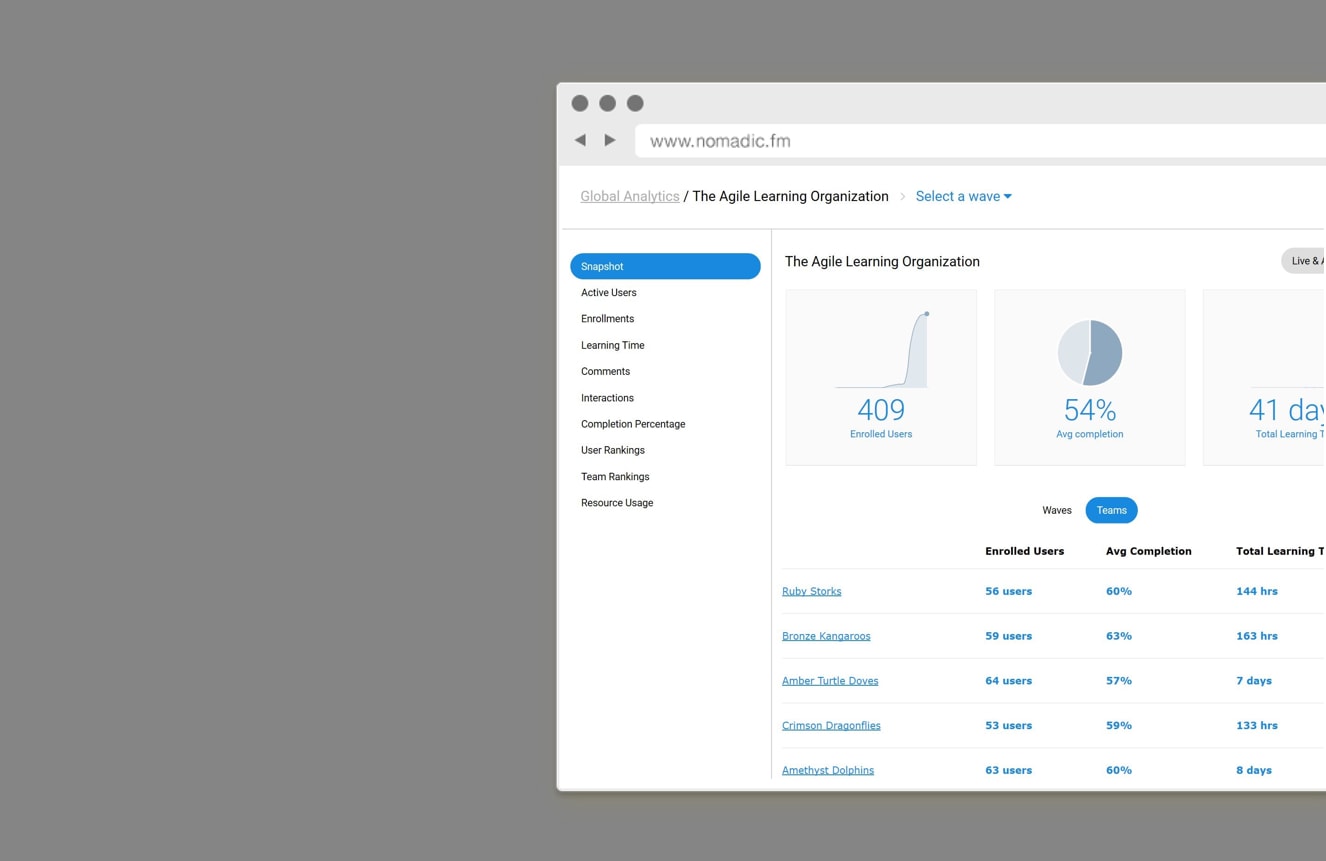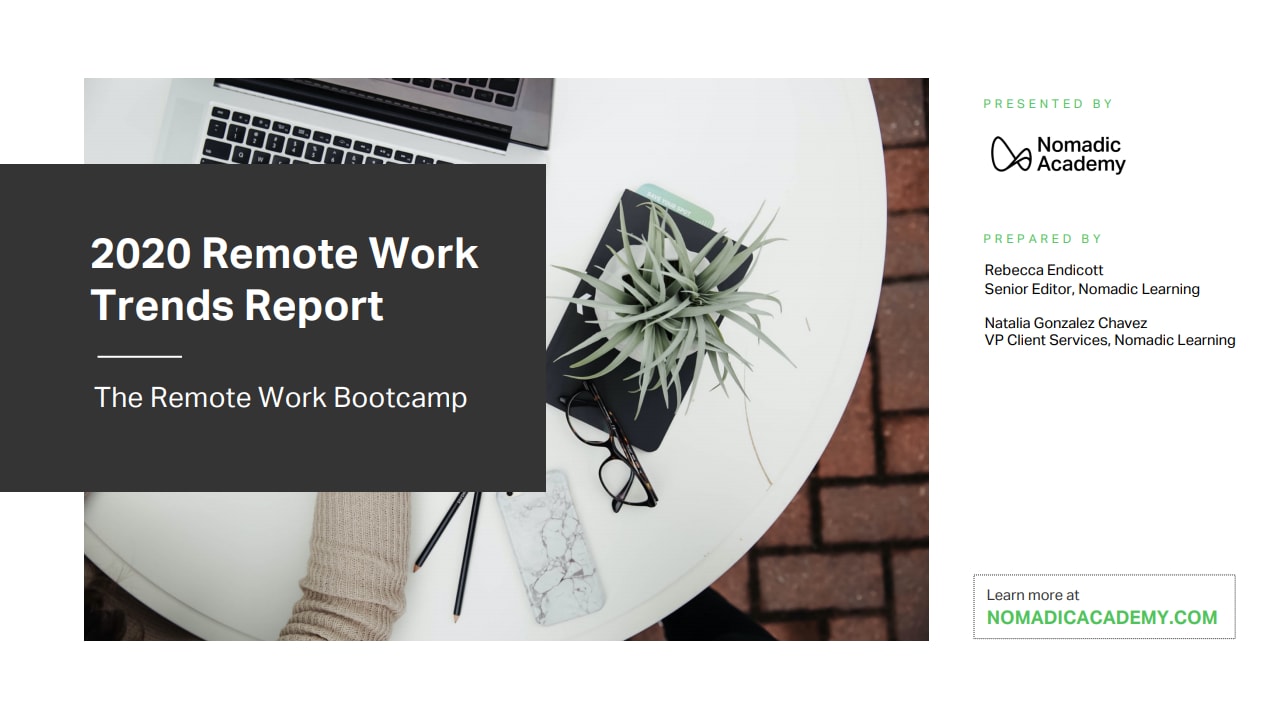How do we measure learning in the Nomadic Academy?

The Nomadic Academy platform provides access to qualitative and quantitative analytics not found on any other platform in the market.

As work has changed over time, so has the role of the manager-as-supervisor. Now that we’re undergoing a huge workplace shift—and one that may permanently change the face of how we work and manage—how does our work as supervisors need to change? Below is a sample from our Management in the Moment Program, all about that transition.
Managers manage. It’s our job to be in charge of our team, to make sure they’re doing what they’re supposed to be doing, delivering what they're assigned to deliver, and aligning with the broader goals and direction of the company. Depending on where we are in our organization’s hierarchy, we might not be steering the ship, but we’re definitely helping to keep it going in the right direction.
For most of the long, complex history of management (which we won’t get into in detail here), this supervisory role was about enforcement. There were rules to be followed and quotas to be met, and our job was to make sure that happened. We did this by managing people’s time and space and workflows: arrive at this time, in this place, to do this thing in this order. We measured and tracked and counted, penalizing people who didn’t make the cut. In the industrial environment in which this kind of supervisory enforcement was born, this all made sense. These methods led to hugely successful companies, enormous profits, and a workforce that enabled it all.
But we live in a different world now. A very different world. For the vast majority of us, the nature of the work that our organizations do and how it gets done is radically different from an industrial model. The old model of supervisor as enforcer is no longer relevant.
In our role as supervisors, we need to move from a mindset of enforcement to one of enablement. From oversight to autonomy. From controlling productivity to empowering performance.
For many of us, these shifts are underway—and were before the pandemic. Most of us are probably on the spectrum somewhere between enforcement and enablement. Some days, with some projects and some employees, we’re able to create the conditions that encourage people to truly excel in the modern workforce: autonomy, clarity, support, and clear communications. Then, in times of great stress or with certain employees, we clamp down and revert to enforcement behaviors.
But, given the state of the world right now, it is urgent that we focus on enablement. We’ve lost control of the things we used to control. We can’t dictate exactly when and how people will work and under what conditions. Those things have, for the most part, evaporated.
Now, our essential work as supervisors is to give people the time, space, tools, and trust they need to thrive. Want to dive deeper? Find out how your team can learn together in the Nomadic Academy.

The Nomadic Academy platform provides access to qualitative and quantitative analytics not found on any other platform in the market.

Management: it’s a word totally and utterly fundamental to the modern lexicon of work. But where does it originate from?

We launched the Remote Work Bootcamp (RWBC) in March 2020 to help with the sudden and enforced move to remote work. Now, several months into the RWBC, we’re taking stock of the data and feedback we have received from our learners.